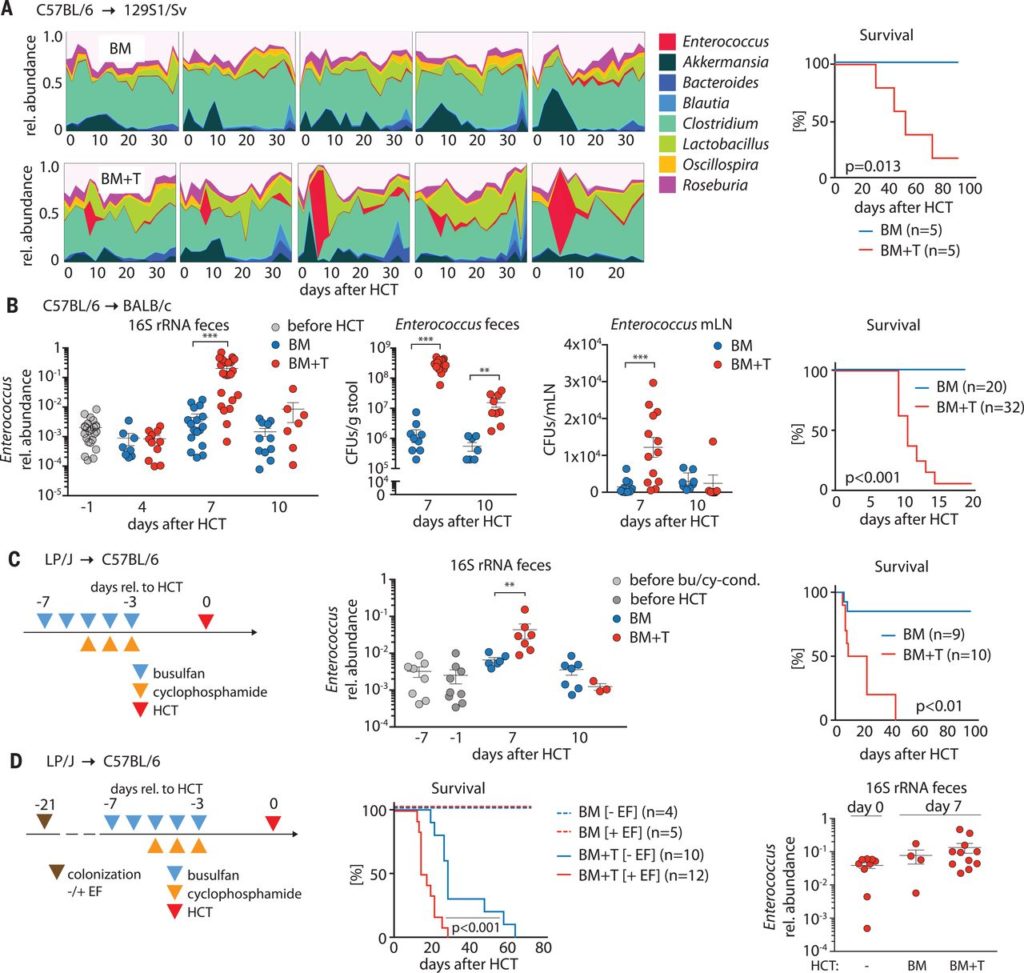Gut microorganisms play an important role in intestinal nutrition absorption, body metabolism, immune development, and resistance to pathogens. Imbalance of intestinal microecology can not only cause gastrointestinal related diseases such as indigestion, diarrhea, necrotic colitis (NE), irritable bowel syndrome (IBS), inflammatory bowel disease (IBD); metabolic diseases (obesity, diabetes, fatty liver, and cirrhosis, etc.); clostridium difficile infections; acute pancreatitis; allergic asthma; cardiovascular diseases (such as hypertension, atherosclerosis, myocardial infarction, and heart failure), autism and tumors ( such as colorectal cancer) and so on.
The destruction of the gut microbial community seems to be the root cause of many human diseases, but the mechanisms that promote this microecological dysbiosis and its adverse consequences are less well known.
Allogeneic hematopoietic cell transplantation (allo-HCT) is used to treat certain hematopoietic malignancies, but patients are at risk of developing graft-versus-host disease (GVHD). GVHD is caused by a series of “cytokine storms” stimulated by the T cells in the allogeneic donor graft after transplantation, which greatly enhanced their immune response to recipient antigens, and launched attacks on recipient target cells, of which skin, liver, and intestines were the main targets. According to the time when GVHD occurs after transplantation, those who occur within 100 days are called acute graft-versus-host disease, and those who occur after 100 days are called chronic graft-versus-host disease. The incidence of acute graft-versus-host disease is 30% to 45%, and the incidence of chronic is lower than acute.

In a new study, researchers from the U.S., Germany, and Japan conducted a large-scale analysis of more than 1,300 patients undergoing allogeneic hematopoietic cell transplantation from four clinical centers and found higher levels of several enterococci, and among them, Enterococcus faecium is associated with higher GVHD incidence and mortality in these patients. Related research results were recently published in Science and the title of the paper was “Lactose drives Enterococcus expansion to promote graft-versus-host disease”.
The researchers found that after allogeneic hematopoietic cell transplantation, enterococci also proliferated in the mouse gastrointestinal tract and exacerbated the disease in a sterile animal model.
The growth of enterococci depends on a disaccharide called lactose, and eliminating lactose from the diet reduces the growth of enterococci and the severity of GVHD in mice, and improves their survival rate.
Patients with the lactose malabsorption genotype have higher enterococcal abundance, and after receiving allogeneic hematopoietic cell transplantation, the ability to clear the predominance of enterococci after antibiotic treatment was poor.
It can be seen that as a common nutrient, lactose can promote the proliferation of enterococci, which can increase the intestinal tract and systemic inflammatory diseases.
Reference
1.C. K. Stein-Thoeringer et al. Lactose drives Enterococcus expansion to promote graft-versus-host disease. Science, 2019, doi:10.1126/science.aax3760.
2.Laurence Zitvogel et al. Immunostimulatory gut bacteria. Science, 2019, doi:10.1126/science.aaz7595.